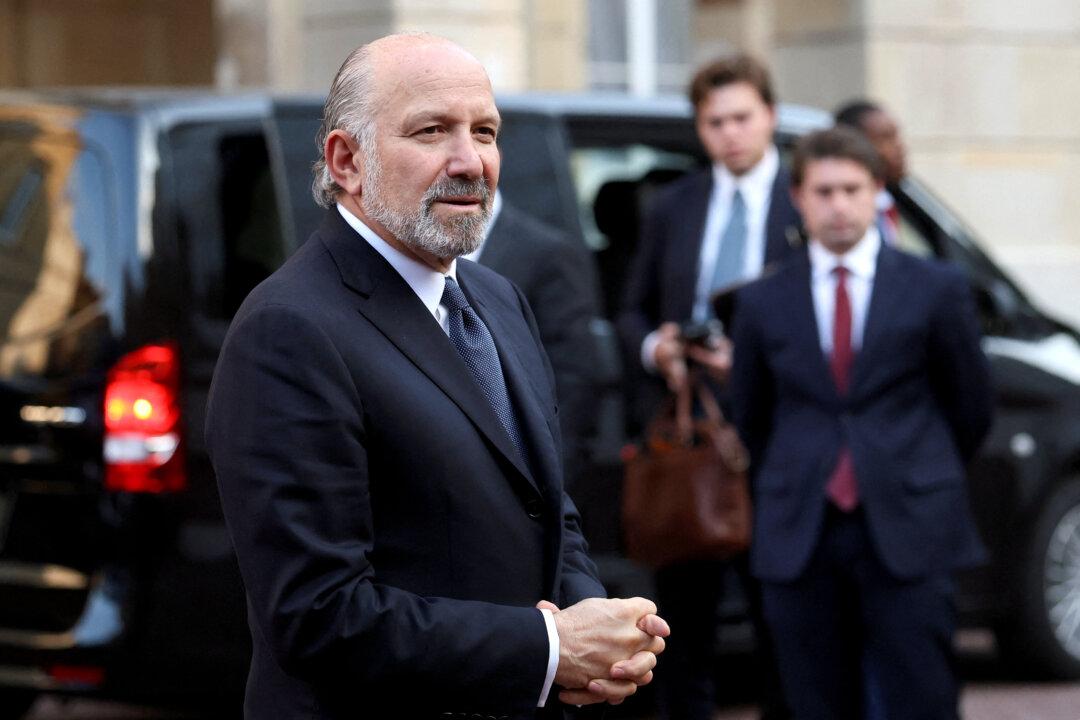Negotiators on both sides of the U.S.-China trade talks have walked out of two days of trade negotiations with an agreement to take back to their respective leaders that outlines a consensus framework for bilateral trade.
“The idea is we’re going to go back and speak to President Trump and make sure he approves it,” Lutnick said of the framework reached. “They’re going to go back and speak to President Xi and make sure he approves it, and if that is approved, we will then implement the framework.”
If approved, the agreement should ease the dueling export controls that had threatened to unravel the consensus reached in Geneva in May.
‘Meat on the Bones’
Lutnick said that the framework expanded on the understanding reached in Geneva on May 12, when the United States agreed to pause its 145 percent tariffs for 90 days to give time for further talks. The tariffs were lowered to the 30 percent already in place—10 percent reciprocal tariffs and 20 percent fentanyl tariffs with some sector-specific exclusions like steel and aluminum.White House press secretary Karoline Leavitt had told Fox News on June 8 that the Trump administration had been “monitoring China’s compliance with the deal” made on May 12 in Geneva, and that the London talks would reveal if the Chinese side were serious about resuming shipments of critical minerals to the United States.
National Economic Council Director Kevin Hassett told CBS’s “Face the Nation” on June 8 that while rare earth exports had resumed by June, they were still below the levels previously agreed upon.
In response to Trump’s April 2 announcement of reciprocal tariffs, Beijing introduced expanded export restrictions on critical rare earth elements, metals, and magnets effective April 4. Beijing tightened export controls on seven rare earth elements—samarium, gadolinium, terbium, dysprosium, lutetium, scandium, and yttrium—straining supply chains critical to America’s defense, aerospace, and automotive sectors.
The consensus framework puts “meat on the bones” of what was agreed to in Geneva, and importantly resolves the fundamental issue of rare earth and magnet exports to the United States, Lutnick said. It’s not clear whether any progress was made on the other fundamental differences over China’s sizeable trade surplus with the United States.
China had already banned exports of the rare earths antimony, gallium, and germanium in December 2024 in response to the Biden administration’s expanded export controls on advanced semiconductors and chip-making technology.
“Also, there were a number of measures the United States of America put on when those rare earths were not coming,” Lutnick said. “You should expect those to come off, as President Trump said, ‘in a balanced way.’”
Such measures include the U.S. decision to revoke visas for Chinese national students with ties to the Chinese Communist Party and warnings of potential penalties over the use of Huawei’s artificial intelligence chips, which the United States believes were created in violation of U.S. export controls.
Lutnick was in attendance with Treasury Secretary Scott Bessent and U.S. Trade Representative Jamieson Greer. On the Chinese side was Li, along with Chinese Vice Premier He Lifeng and Chinese Commerce Minister Wang Wentao.







